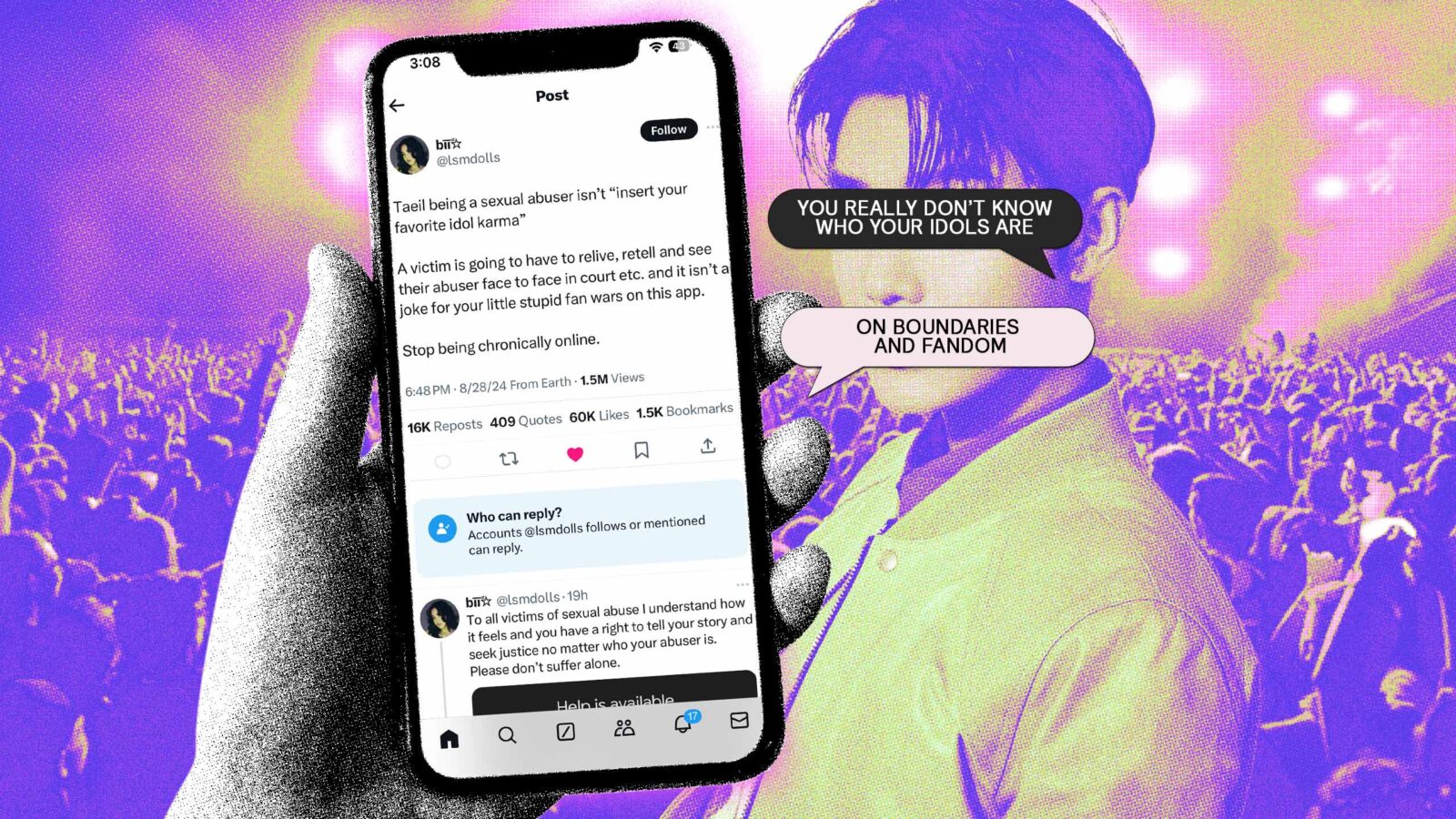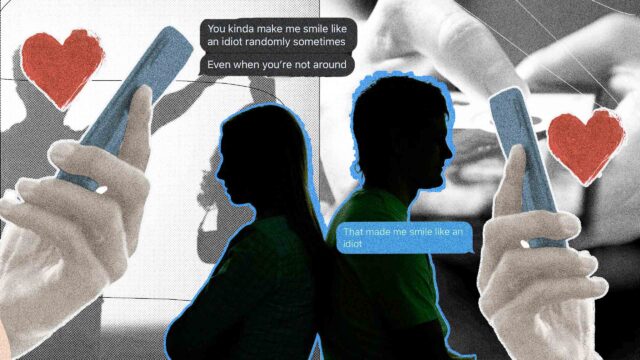Putting boundaries with how you stan your fave idols doesn’t make you any less of a fan.
Related: 6 Red Flags Every Stan Should Avoid
By now, you’ve probably heard the news about NCT’s Taeil. But in case you haven’t yet, the K-pop idol was recently removed from both NCT and SM Entertainment after the company released a statement saying that the K-pop idol was “accused in a criminal case in relation to a sexual crime”. If you know SM Entertainment, you know that they’re either slow to act or are willing to go the distance with some their idols who have been accused of misdeeds. So the fact that Taeil was removed that quickly must have been serious.
Understandably, the situation, which has been under police investigation for months, has left many K-pop fans shocked considering Taeil was widely seen as unproblematic in his years as an idol. But with his banishment from the industry comes another sobering reminder that, at the end of the day, we really do not know our idols and that we should put an asterisk on the unyielding support we give to our faves.
YOU DON’T KNOW THEM
It’s no secret that K-pop thrives off building parasocial relationships with fans. Through content released by idols and companies, fans get to feel that they know their biases on a personal level, which helps push them to buy their albums, merch, and concert tickets. But when you think about it, do you really know your idols? What you know about your idols is just what you see online and there will always be sides to them you never see.
K-pop, after all, is still an industry, and there is some degree of manufactured personas and personalities at play. Fan familiarity and the idol persona are a powerful combo that makes us think that they could never do it. But they can, and thinking otherwise can blind us to the fact that we are allowed to and should hold them accountable.
Taeil being a sexual abuser isn’t “insert your favorite idol karma”
— bīīً☆ (@lsmdolls) August 28, 2024
A victim is going to have to relive, retell and see their abuser face to face in court etc. and it isn’t a joke for your little stupid fan wars on this app.
Stop being chronically online.
Behind closed doors, we don’t know what they do, say, think, believe, or feel. Yes, that’s their private lives and they aren’t obliged to tell the world about it. But at the same time, this also is a reminder that we shouldn’t always put our faves on pedestals and see them as people who can do no wrong. And the reality is that there can be and are probably more problematic idols out there. That isn’t to say every idol is bad. We all wish the artists we follow are good people. But they are still people, and sadly, that means they are fallible.
Also, this should not be used as an opportunity to dunk on former fans of Taeil. This isn’t about you proving that you’re morally superior because that isn’t productive to the situation. Don’t invalidate their feelings if they saw him as a role model only to be heartbroken by what’s happened. The blame and focus for a man’s crimes should never be passed on to his fans. They didn’t know and they deserve the grace and space to step back, mourn, and reflect on recent events.
THE BIGGER PICTURE
In all this discourse, let’s not forget that, at the heart of it, an actual crime was committed with victims who have to relive and retell their trauma in a world that can be so dismissive of their stories. We sympathize with them and hope they find solace, and, more importantly, justice. Their stories are just one of thousands of women in South Korea who are dealing with systematic harassment and abuse and, like with Taeil’s victims, are often silenced for trying to speak out.
With the Taeil situation,I want everyone's attention on what's happening in south korea: why are korean women gathering on twitter and calling for global help? what are the chat rooms and deepfakes? what is the 4B movement? and why we should help them
— Lulu | 🇵🇸 (@muixsuzuya) August 28, 2024
pls rt,a long informative🧵:
It’s natural and even understandable to go the extra mile as a fan. But at the end of the day, you are a person first before a fan with morals and values that go above sticking by your fave. You can still show your support, but there should also be a reality check that celebrities aren’t god-like figures. Healthy stanning is possible as long as you don’t allow the delulu fantasy to be reality and stay grounded in your support. Your stan card won’t decline just because you take a step back from the idolization of it all. So, remember that idols aren’t perfect, it’s ok to put boundaries in your stanning, and support victims.
Continue Reading: Why Do We Treat Victims So Callously? The Value Of Compassion In Dealing With Tough Stories





